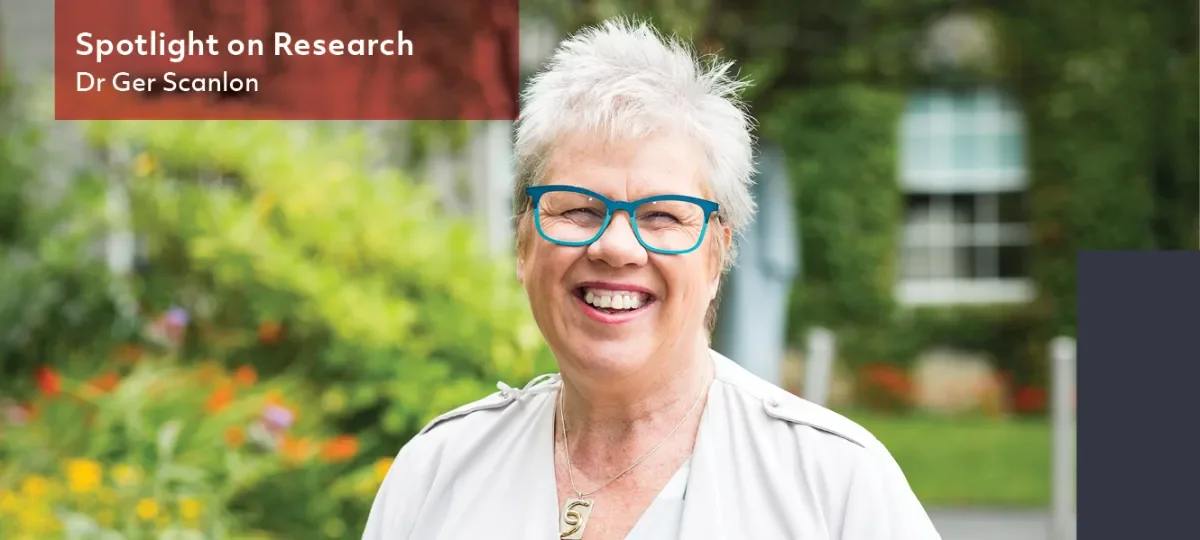

Giving more people the human right of education
This week's Spotlight on Research is with Dr Ger Scanlon Assistant Professor in Education Psychology, DCU Institute of Education
Your work looks to ensure that more voices are heard in education, so that everyone can be included. What are you working on now?
“Yes, there is a theme in my research about human rights in education, enabling access and citizenship and participation in society.
At the moment one of the projects I am working on is looking at the educational needs of children who are homeless and living in emergency accommodation.
It’s unfortunately a very topical subject. Myself and Grainne McKenna, an expert in early childhood education, are funded by The Children’s Rights Alliance to establish the needs of these children in education.”
What impact will that research have?
“Our findings will contribute to developing recommendations for schools and we also hope it will inform policymakers. Day to day, schools are doing an excellent job in placing the needs of the child who is experiencing homelessness at the centre of their approach.
But schools require more specific guidelines and support, and we hope the findings from this project will make an impact in this regard.”
Who else are you working with to make education more inclusive?
“I’m leading a project funded by the Irish Research Council to find out what happens when young people with intellectual disability (ID) leave the school system at 18 and how we can help them have more opportunities.
Traditionally, these students have transitioned to Daycare services which may not meet their educational and training needs."
I have a keen interest in the rights of people with disabilities and I have teamed up with a social enterprise called WALK in Louth.
They have established a system to support young people with ID as they leave school, to give them the same choice as their peers.
My research is testing the model and talking to students, families, schools and employers to see how we can develop a national policy to support this transition.
With some insight and information, these young people can get the opportunity to perform to the best of their ability.”
What about children in mainstream schools who are at risk of dropping out?
“That’s another interest of mine at the moment. I’m leading a project in Dublin’s inner city, where students in disadvantaged areas may find it difficult to transition from primary to secondary school and then later on from Junior Cert to Leaving Cert.
These children need encouragement and their families need support, as sometimes the parents did not have a great experience at school themselves.
So we are talking to students and teachers and parents to see how best to support students to stay in school and not drop out.”
What’s the hardest aspect of the research?
“Sometimes it’s difficult and time-consuming to get the information you need.
That might be because agencies are stretched and don’t have the resources to capture or collect the data, or schools might be extremely busy and under pressure, so even though they want to help it can be hard to get the time.
You also have to be sensitive in how you approach people, you need to take the time to reassure them and become their advocate.”
And the most rewarding aspect?
“I think it is that my research is going to make a difference. It will have an impact on policy or practice and will improve lives of children.”
What are you looking forward to in 2018?
“I’m going to do some more work on a project in Bulgaria with UNICEF, which combines my interest in human rights with my love of travel.
My involvement in the Bulgarian system of education came about as a result of an ERASMUS mobility programme from my own school to Sofia and building on links with several NGO's in inclusive education in Bulgaria.
The project with UNICEF is about developing an inclusive framework for kindergartens and to support teachers in this regard.
We have developed training modules for teachers and we are going to examine their impact on teacher attitudes and flexibility in accommodating children with disabilities in their classrooms.
I find that fascinating and my work with UNICEF has really broadened my view on human rights. I see that more and more as part of my future work.
